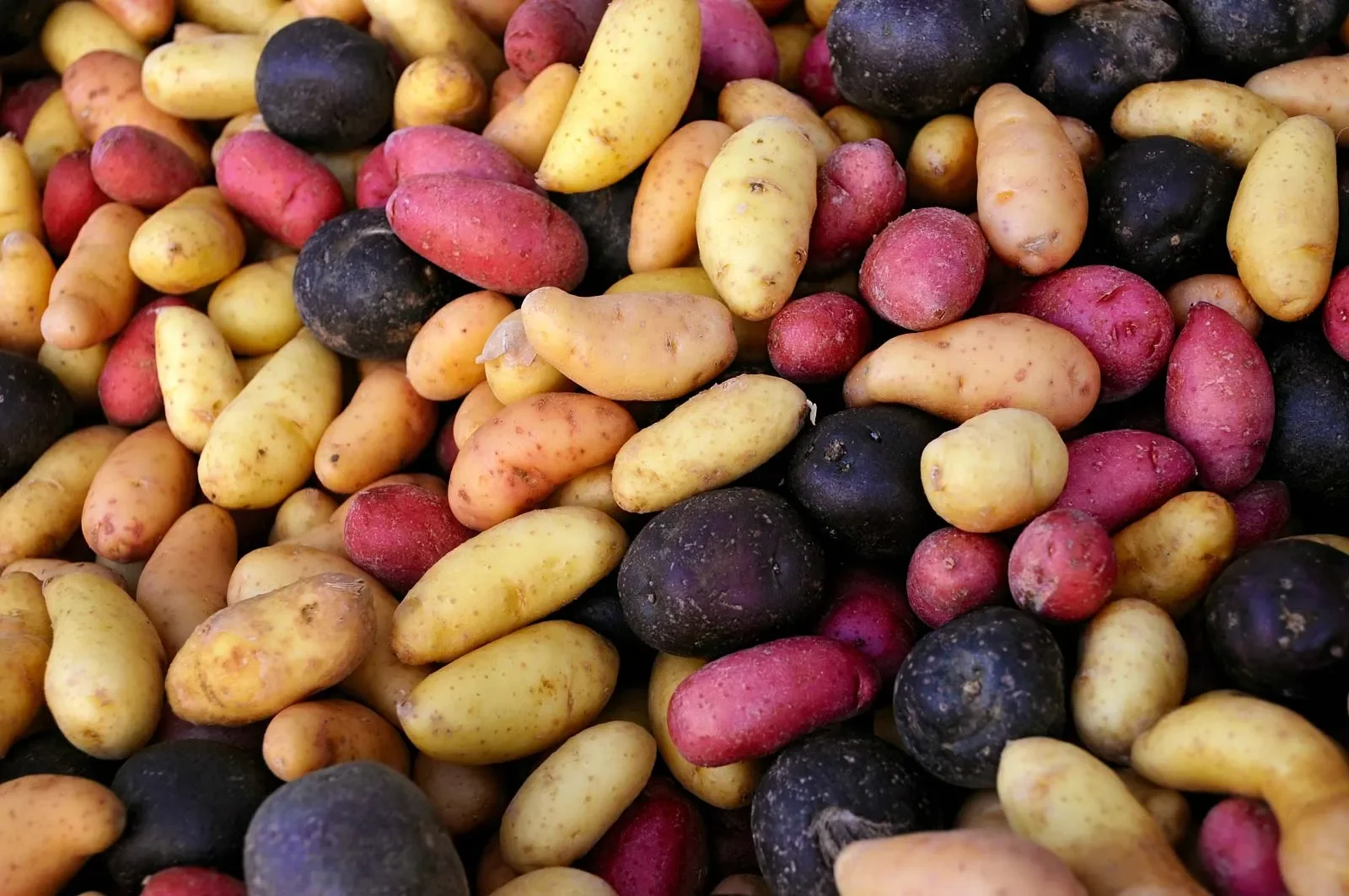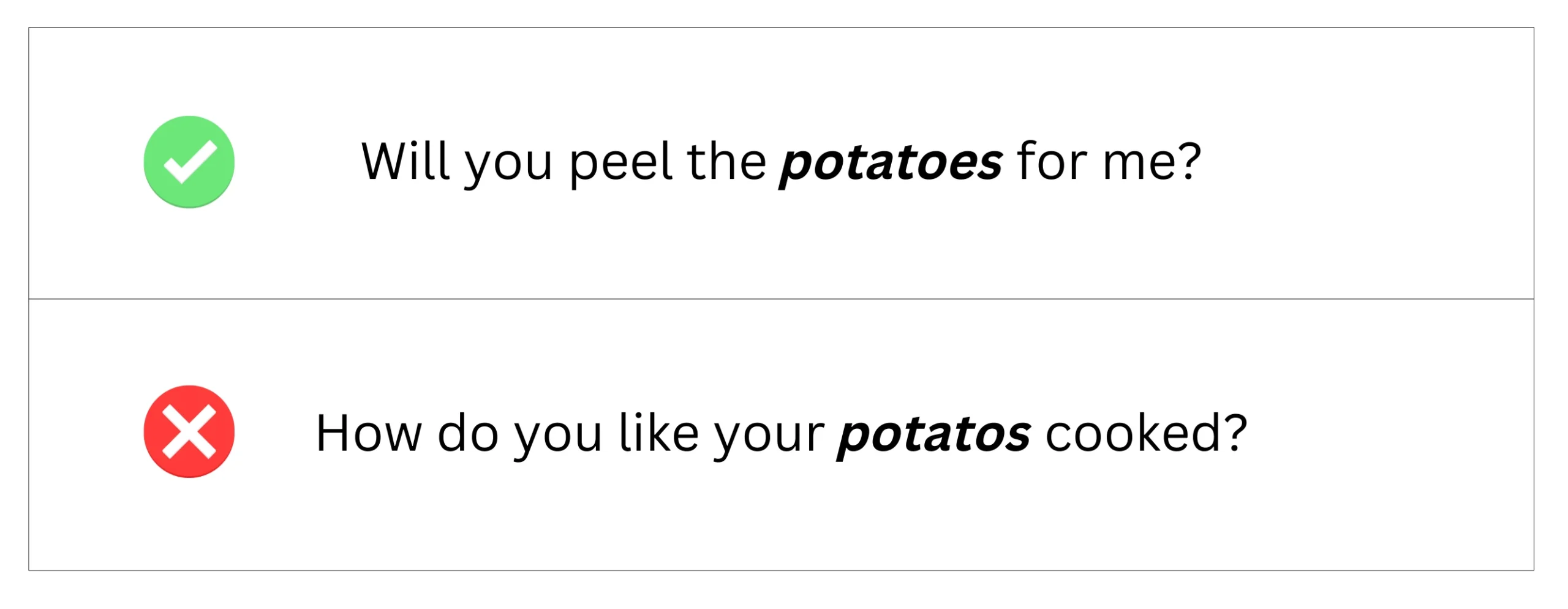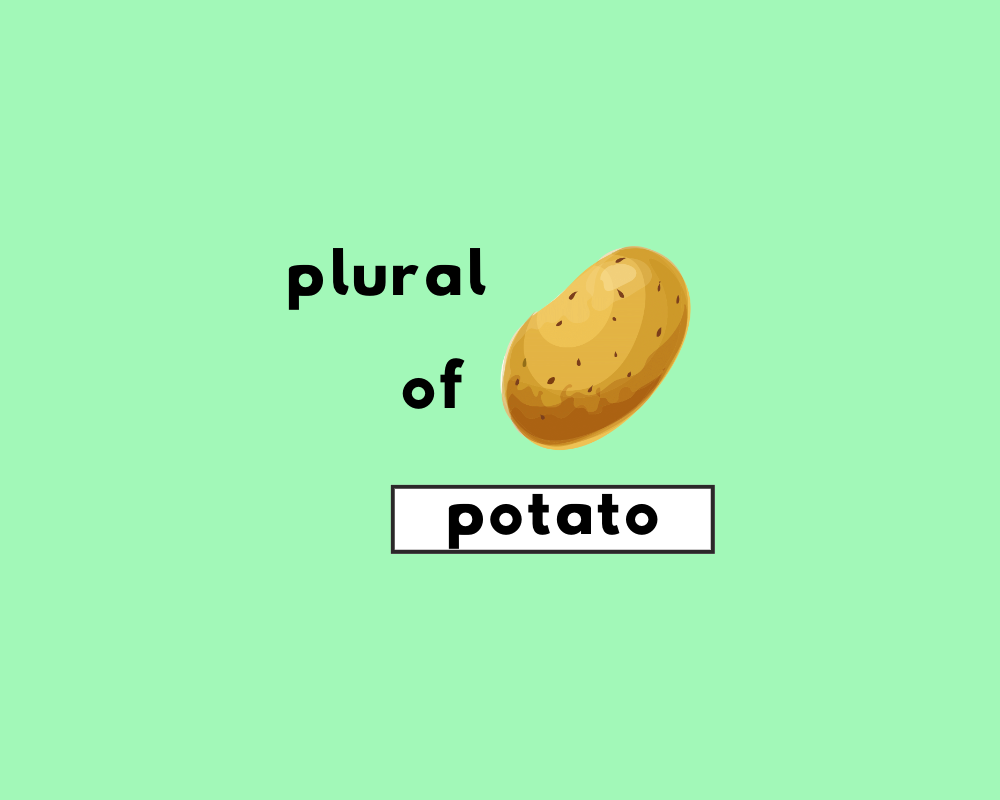
What’s the plural of “potato”?

We ordered a large bowl of mashed potatoes.
The table listed several nouns ending in -o that form plurals with -es or -s.
He peeled three potato for dinner.
We need to buy two tomatoe for the sauce.
The plural of potato is potatoes. Like the tomato, both have Spanish origin and end in –o. Likewise, both tomato and potato adheres to the regular plural noun rule in English by adding an -es/-s to denote a plural.
What are potatoes? Are potatoes a fruit or a vegetable?
Potato is defined in the dictionary as:
A round vegetable that grows underground and has white flesh with light brown, red, or pink skin, or the plant on which these grow: boiled/roasted/fried potatoes, mashed potato/mashed potatoes.
The plural of “potato” is “potatoes,” visualize a pile of potatoes, associating the -es ending with the plural image.
Nouns that end in –o
See the following nouns that end in –o and add -s/-es to show plurality:
| singular nouns ending in “-o” | plural “-es” / “-s” |
| tomato | tomatoes |
| buffalo | buffaloes or buffalos |
| potato | potatoes |
| hero | heroes |
| volcano | volcanos or volcanoes |
“Potato”, used in sentences
1. She rinsed a potato and dropped it in the kettle.
2. We are settled in our couch potato ways.
3. She threw the potato into a pan and eyed Carmen reflectively.
4. He casually spooned a bite of potato salad into his mouth and methodically chewed and swallowed it.
5. In Europe, potato starch is generally employed; in America, corn starch.
Potatoes in context (in sentences)
1. Serve with small cubes of roast potatoes and a green salad.
2. Katie placed a bowl of mashed potatoes on the table and paused, hands on her hips as she gave Carmen an exasperated look.
3. Eat jacket or boiled potatoes rather than fried or roast.
4. I put the potatoes in the oven to bake about ten minutes ago.
5. We had salad, chicken and boiled potatoes for supper.
Work Sheet
What is the correct plural form of the noun “potato”?
According to the blog post, how do nouns like “potato” and “tomato” typically form their plural?
Which option represents the singular form of the word discussed in the post’s title?
Based on the list provided in the post, which of these nouns ending in -o forms its plural by exclusively adding -es?
The post compares “potato” to “tomato”. What is the correct plural of “tomato”?
We need to buy three large for the stew.
She peeled a single for her baked dish.
We grew several juicy in our garden this year.
The children dressed up as their favorite for Halloween.
Would you like mashed with your chicken?
Frequently Asked Questions
What is the plural of potato?
+
How do you make potato plural?
+
How is “potatoes” used?
+
Does tomato pluralize like potato?
+
Can potato be singular?
+
Yash, D. "What’s the Plural of Potato?." Grammarflex, Jun 20, 2025, https://www.grammarflex.com/whats-the-plural-of-potato/.
Sources
-
Definition of potato.











